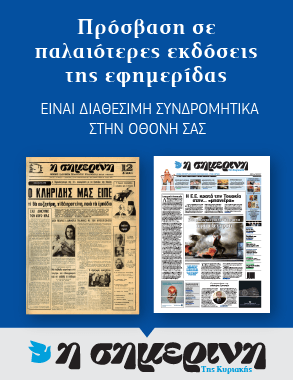The Drowning of Famagusta…

Famagusta. A city buried in sand and drowned in lies. It is used from time to time for expediencies in the Cyprus problem. And ultimately, what should have been the advantage of its immediate return has evolved into a double deception. One lies with the Turks, whose promises and commitments remained worthless obligations. The other lies with our own side, which instead of placing the return of the city as a top priority, pushed it into the quicksand of their petty politics.
The Turks bear the burden of proof if they truly want a solution or not. And there is no more appropriate case to demonstrate this than the return of Famagusta. On this matter, there are not only the relevant UN Security Council resolutions but also Turkish commitments, as they emerge from the Second High-Level Agreements between Kyprianou and Denktash in 1979.
During the first presidency of Nicos Anastasiades, Famagusta was treated as a priority issue. This was followed by backtracking and the adoption of Turkish policy under the pretext: since the Cyprus problem would be solved within six months, let us include Famagusta in the framework of the final settlement. Since then, neither a solution has been achieved nor has the city been returned. On the contrary, the Turks are changing its status. They are opening hotels and threatening with settlement. Meanwhile, both the Government and the rest of the appeasement camp watch the new faits accomplis without reacting and without assuming their responsibilities.
READ THE ARTICLE IN GREEK - Ο πνιγμός της Αμμοχώστου…
If they want the situation to change, the President and the National Council should place the issue of Famagusta as a Confidence-Building Measure (CBM). Nikos Christodoulides has a classic opportunity to do so at the upcoming meeting in New York with the UN Secretary-General and Ersin Tatar. If he does not, then he must explain what is preventing him. Is it Athens, so as not to disturb the “calm waters” of the Aegean? Or is it fear of Ankara’s anger?
It is his opportunity to raise the issue of the return of Famagusta:
- • As a space of common coexistence between Greek Cypriots and Turkish Cypriots under EU law as incorporated into the Republic of Cyprus.
- • As a CBM and as a model that could be extended across the entire island.
If the President does not fear Turkey’s anger or Athens, then what does he fear? The truth? That his policy is a dead end, and that for it to have an outlet, the Turkish partitionist terms must be accepted? But if they are accepted, not only Famagusta but the whole of Cyprus will be buried. Not in the sand, but under the boot of Turkish overlordship!



